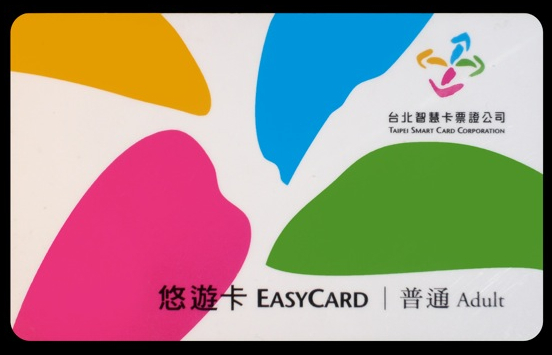Taiwanese Telcos Meet for Talks on NFC Collaboration

Five Taiwanese mobile operators and the country’s largest contactless payment provider met Friday for talks to consider forming an alliance or joint venture to help them roll out NFC on the island nation, sources told NFC Times.
The participants included representatives from Taiwan’s three major telcos, Chunghwa Telecom, Far EasTone and Taiwan Mobile, along with fare-collection and retail-payment provider EasyCard Corp., NFC Times has learned. Two smaller mobile operators, Vibo Telecom and Asia Pacific Telecom, also participated.
The parties discussed possibly forming a joint venture, like one hatched by Dutch operators and banks, or the Isis venture in the United States among mobile operators. Other options include a less formal partnership, which would enable the telcos to coordinate rules and specifications for NFC rollouts, similar to what telcos and service providers in France have done.
It was the first meeting of the group to discuss the possible joint venture or alliance. Later, the telcos and EasyCard are expected to talk about some specific areas of cooperation, such as how to manage applications on secure elements in the forthcoming NFC phones. They are considering choosing a common trusted service manager.
The parties will also talk about common specifications for NFC handsets, procedures for how NFC payment and ticketing services will be carried out and ways to deal with the rather strict financial regulatory climate in Taiwan.
The telcos do not apparently plan to introduce their own payment service with NFC. Instead, they would enable the contactless EasyCard application and also would be open to banks issuing such applications as Visa payWave and MasterCard PayPass, sources said. But it’s possible one or more of the telcos might try later to introduce a payment service.
The joint initiative could help speed NFC rollouts in Taiwan, which is expected to become one of Asia’s NFC hot spots. Major mobile operators are likely to launch NFC rollouts before the end of this year and expect to have as many as 10 NFC phone models available for subscribers.
Roger Chen, vice president for product and service incubation and enabling at FarEast Tone, told NFC Times that by working together, the telcos could set uniform specifications for the handsets they would order individually, including the type of secure element supported in the phones to store payment and other applications.
Besides possibly choosing a common trusted service manager, or TSM, to handle the loading and management of the secure applications, the group could set rules or procedures for service providers, including banks, to ensure a consistent experience for consumers when they use NFC phones on the island.
“That kind of consistency will ease implementation for service providers; (and) we will invite a lot of services providers to come onboard,” Chen told NFC Times, adding: “Mobile operators together can be a strong negotiating power and can be strong enablers in dealing with handset vendors or operating system vendors like Google.”
EasyCard a Driving Force
A driving force behind the push for mobile operators to cooperate is EasyCard, which has issued nearly 25 million cards for its popular contactless transit card scheme in the capital, Taipei, since launching in 2002. For the past year, cardholders have also been able to use EasyCard to pay for low-value purchases at convenience stores and other types of merchants, with about 12,000 locations throughout the island able to accept the contactless cards as of April, according to the company.
 That easily outstrips contactless acceptance points for cards supporting Visa payWave and MasterCard PayPass issued by Taiwanese banks. During the past year, nearly 5 million people have reportedly used EasyCard for purchases, and consumers conduct nearly 300,000 retail transactions daily.
That easily outstrips contactless acceptance points for cards supporting Visa payWave and MasterCard PayPass issued by Taiwanese banks. During the past year, nearly 5 million people have reportedly used EasyCard for purchases, and consumers conduct nearly 300,000 retail transactions daily.
Now EasyCard would like to expand its closed-loop payment service to mobile phones. The company has been involved in at least five NFC or contactless-mobile trials in Taiwan, mainly working with Chunghwa Telecom, Taiwan’s largest operator, which has a 34% market share in terms of revenue.
But EasyCard is intent on offering service through all three major operators for its rollout, said sources. Far EasTone and Taiwan Mobile each owned a 26% share of the mobile market by revenue in the first quarter of 2011.
With its leading market share and nearly 10 million mobile subscribers out of Taiwan’s population of 23 million, Chunghwa Telecom, CHT, probably is not so eager to collaborate with its smaller rivals.
But CHT is expected to go along with the joint NFC initiative, if for no other reason than to gain access to EasyCard’s huge customer base, say observers. That is also a reason for the other telcos to form a joint venture, said Laurent Renard, CEO of Taipei-based Toro Development, which develops NFC mobile-wallet software and a platform for distributing NFC apps. Far EasTone’s Chen disclosed the joint talks among the telcos and EasyCard at a recent Mobile Monday event organized by Toro.
“The only reason they'd go for this JV is for the access to the EasyCard application and infrastructure,” Renard told NFC Times. "EasyCard is really very, very big in Taiwan.”
The telcos and service providers are also interested in using NFC for tag reading and peer-to-peer applications that require much less security, noted Renard, but he added that with thousands of contactless transit and retail payment terminals already in place, “Taiwan is the perfect setup to launch secure NFC (payment).”
Miou Char-Shin, who is project manager for NFC technology and IC card applications for Chunghwa Telecom Laboratories, agrees that EasyCard is “necessary” for any NFC rollout. “EasyCard is most convenient and most popular payment solution in Taiwan,” he told NFC Times.
Government to Play a Role
CHT has been working with EasyCard on a government-funded project to develop a TSM for Taiwan. It’s unclear what would happen to that project if the Taiwanese telcos and EasyCard agree to form a joint venture or alliance. But CHT and EasyCard still are obligated to meet government mandates tied to the funding, including introducing several thousand NFC phones to customers this year.
It’s also unclear what role the Taiwanese government is playing in the joint talks and how it would regulate any joint venture or alliance the operators form along with EasyCard.
Taiwan's Financial Supervisory Commission would no doubt weigh in if any of the telcos decided to introduce its own payment service. The government has not been exactly liberal in its e-money or mobile-payment regulation. The commission, following legislation adopted in Taiwan opening the payment market to non-financial institutions, only approved EasyCard Corp.’s application to expand use of its fare-collection cards to make purchases in stores in January of 2010. That is 10 years after its counterpart in Hong Kong gave the green light to transit fare-collection company Octopus Cards to enter the retail-payment market.
Regulators in Taiwan limit EasyCard retail purchases to NT$1,000 (US$35.06) per transaction and NT$3,000 per day. Those limits would likely extend to EasyCard applications on mobile phones.
Start of Rollouts Expected This Year
Most observers expect NFC rollouts in Taiwan to begin before the end of 2011. Far EasTone’s Chen said he is counting on six to 10 NFC models being available by then, all or most of them smart phones.
Among the models likely to hit stores in Taiwan are one or more Android phones from Taiwan-based handset maker HTC and perhaps Android models from Samsung and LG Electronics. In addition, Samsung’s Wave 578, running the phone maker’s own bada smartphone operating system, will be available.
The Wave 578 supports applications on SIM cards, the preferred secure element for the Taiwanese telcos, because they would issue the cards and, therefore, would have complete control. But Far EasTone’s Chen said the telcos are open to other secure elements, such as embedded chips.
“As long as operators are working together, we will have good bargaining power, even if it’s a handset-based secure element,” he said. “This will help avoid fragmentation.”













...about time!
- - -
Did you attend the Mobile Monday event, Dan?
Don't leave out 'MoMo' - it needs your support.